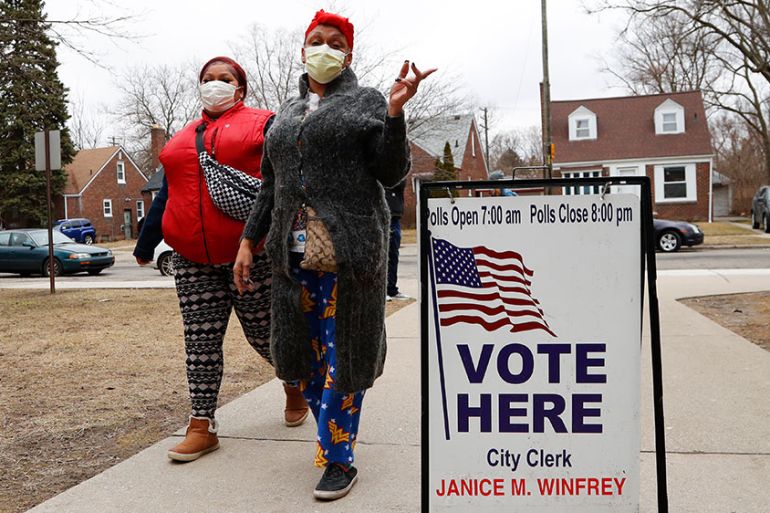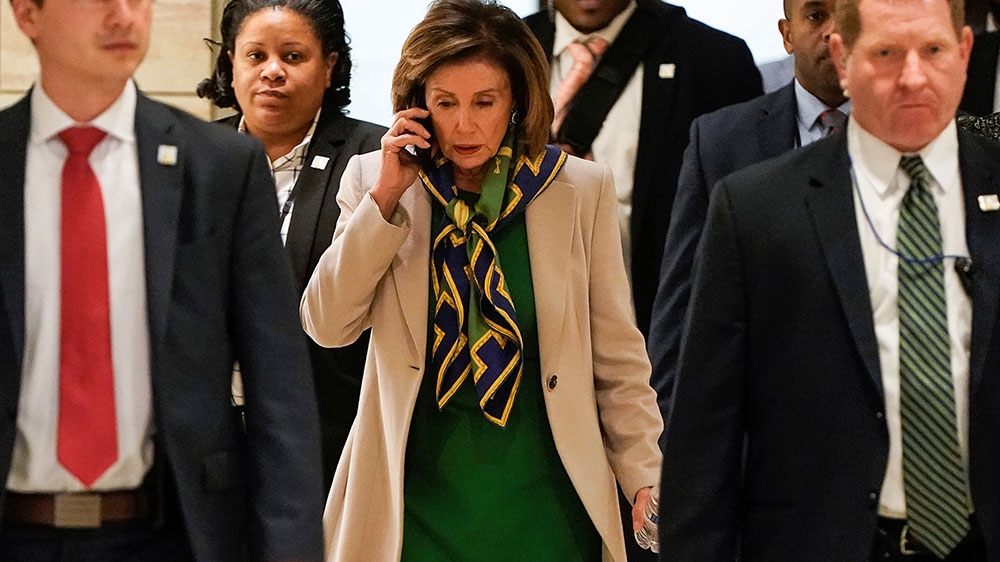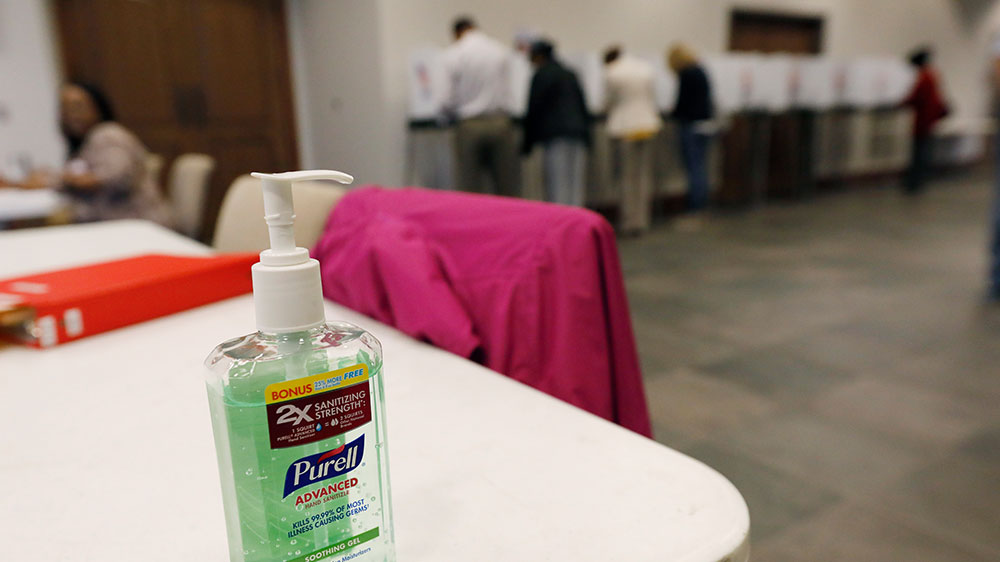US officials weigh mechanics of a coronavirus election
A battle is brewing between Republicans and Democrats over whether to allow widespread mail-in voting in November.

Officials in the United States are grappling with a new political challenge: how to hold a national election in the washout of the coronavirus pandemic.
Grim new projections from top government scientists suggest the US could face between 100,000 to 240,000 deaths from the coronavirus in coming months. The pandemic is reshaping how the US will hold its next national election.
Keep reading
list of 3 itemsBoeing to offer staff voluntary layoffs, early retirement: Report
US Democrats mull next virus bill, Trump targets infrastructure
And yet, in November, some 260 million Americans are expected to go to local polling places in schools, libraries and public buildings and stand in line to vote for their choice for president and members of Congress.
“Assuming that we are still going to be dealing with issues having to do with the pandemic in November, we are going to have a huge increase in the use of vote by mail in all states,” said Rick Hasen, a professor of law and politics at the University of California.
The last time the US faced an election quandary like the current one was in 1918, when a mid-term vote was held amid the Spanish flu pandemic. Then, as now, widespread quarantines were in place and businesses were shuttered. Voter turnout ended up being abnormally low – 40 percent – and the opposition Republican Party took complete control of Congress from incumbent President Woodrow Wilson’s Democrats.
Already, most primary contests for the Democratic nomination for president – now down to a race between Joe Biden and Bernie Sanders – have been postponed until June.
Wisconsin carries on
A lone holdout, the Midwest state of Wisconsin, is struggling to conduct its primary next week. Localities like Milwaukee are dramatically reducing the number of polling places because workers are not willing to risk exposure to the virus, and bringing in National Guard troops to staff those that do remain open.
“If we are going to have an election in November that is not going to disenfranchise lots and lots of people, then we need to have vote-by-mail,” Hasen told Al Jazeera.
In the $2.2 trillion rescue package enacted by the US last week, Congress provided $400m to help the states deal with the coronavirus effect on the election. Hasen and others say that will not be enough.
Democrats sought to include a provision mandating all 50 states allow universal mail-in balloting, but the effort was rebuffed by Republicans.
Balloting by mail is polarising for the two large American political parties. Democrats generally want to encourage turnout and Republicans are often seen placing controls on voting. The underlying reason is that if everyone voted, the outcomes would likely be to Democrats’ advantage.
“In terms of the elections, I think we’ll be moving to vote by mail,” House Speaker Nancy Pelosi, the number one Democrat in Congress, said in a television interview on Tuesday.
Pelosi indicated again on Wednesday she intends to continue pushing the issue in negotiations with Republicans on the next legislative response to the coronavirus crisis.

Republican resistance
President Donald Trump acknowledged the Republican resistance to universal mail-in balloting in a television interview on Monday.
Speaking about the negotiations with Democrats over the rescue package, Trump said; “They had things, levels of voting that if you’d ever agreed to it, you’d never have a Republican elected in this country again.”
Most states already allow voters to cast mail-in ballots, although with restrictions, according to a survey by the Pew Charitable Trusts, a non-partisan policy think-tank in Washington, DC.
In the 2018 congressional elections, one-fourth votes were cast by mail-in ballot, according to Jack Young, a lawyer in Washington, DC and former counsel to the Democratic National Committee.
“It is not enough just to allow citizens to vote by mail,” Young told Al Jazeera. “We’ve got to come up with funding to support the process.”
“We are going to flood postal facilities with last-minute mail-in ballots at a time when the system is under great stress,” Young said.

‘Absentee’ voting
Seventeen of 50 states currently restrict so-called “absentee” voting by mail to people with disabilities or who will be out of town on election day.
Only a few states – including California, Hawaii, Oregon, Washington and Utah – already allow everyone to cast a ballot by mail.
Marian Schneider, president of the Verified Voting Foundation, a non-profit advocacy group, said many states that are not accustomed to seeing a heavy volume of mail-in ballots are going to face challenges.
“Elections are the foundation of our democracy. We should be thinking about, how can we make the election safe for all the voters, and how can we work together to make sure that happens,” Schneider told Al Jazeera.
“At the end of the day, COVID-19 does not discriminate by party affiliation. This is a public health crisis,” Schneider said.
The pandemic crisis is so extreme, even opponents of expanding vote-by-mail procedures are advocating local administrators waive state constitutional restrictions on voting by mail.
New York’s constitution only allows absentee balloting for reasons of illness or absence.
|
|
Doug Kellner, a co-chair of the New York State Board of Elections, is advising local officials to bypass that restriction by simply allowing anyone who wants to use a mail-in ballot to do so.
“Almost all of the fraud that has occurred in elections has been in connection with absentee ballots and so, I am very concerned about that becoming the normal method of voting,” Kellner told Al Jazeera.
“But we cannot maintain a democracy without holding elections. And whatever conditions we have to impose to make that happen, we have to do,” Kellner said.
